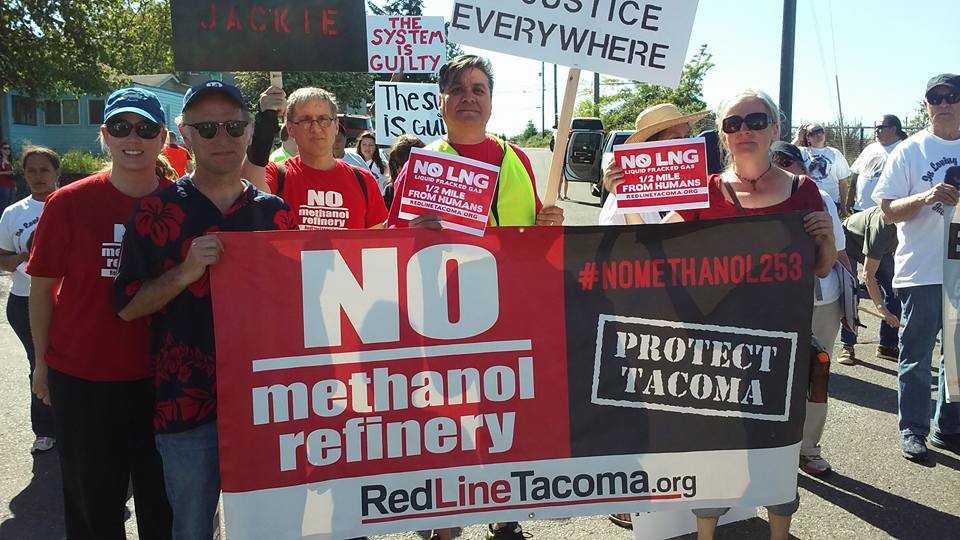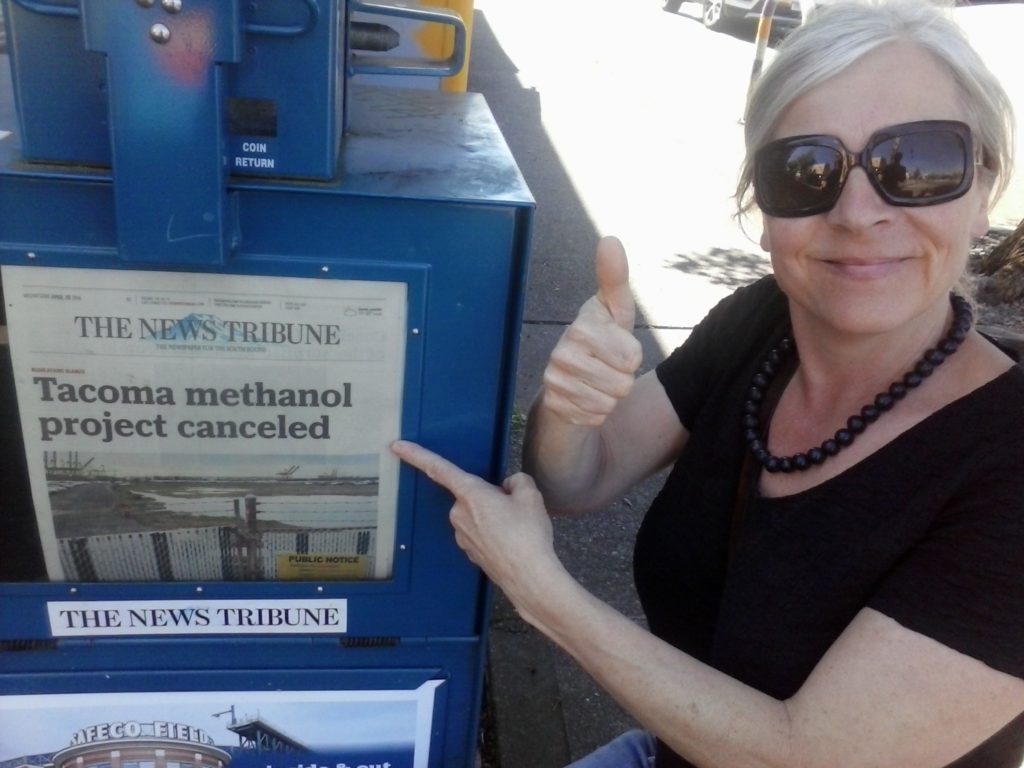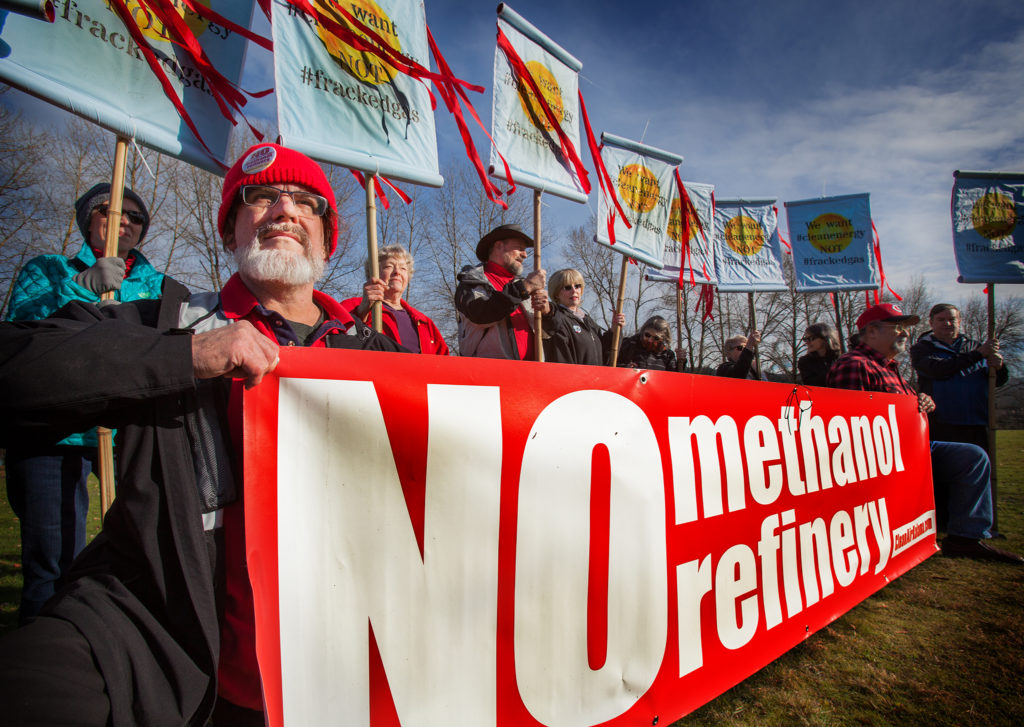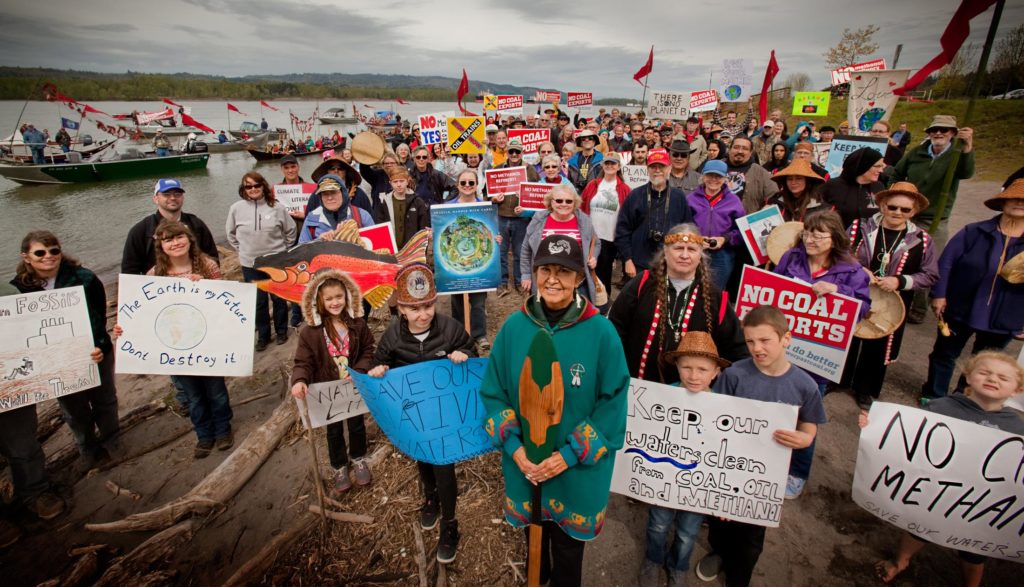While communities across the Pacific Northwest were defeating coal and oil projects, new fracked gas proposals began to slip under the radar. In 2014 Northwest Innovation Works, a Chinese government-backed company, signed preliminary leases with the Ports at Kalama, Washington, Port Westward, Oregon and Tacoma, to build three massive methanol refineries. These facilities would import fracked gas from Canada and refine it into methanol, which would be shipped to China to manufacture plastics.
When residents in Tacoma found out about plans to build the world’s largest methanol refinery at their port they rose up in a united front and drove Northwest Innovation Works out of town. So the company refocused their efforts on the Port of Kalama, where they had signed the initial lease to build a methanol refinery. In Kalama, which is a much smaller and isolated community, it took longer to organize opposition to the refinery, but after three years of organizing, hundreds of people came together to stop it. With the help of Columbia Riverkeeper, the Sierra Club and Center for Biological Diversity, they were able to delay permit approvals through lawsuits.
In the spring of 2019 Governor Jay Inslee finally publicly opposed the methanol refinery, but took no actions to actually stop it. You can find out more here about what you can do to help stop the Kalama Methanol refinery.
A note of hope: On November 22, 2019, the Washington Department of Ecology (Ecology) determined the backers of the Kalama methanol refinery failed to provide complete, adequate information to state regulators, and decided to conduct a new Supplemental Environmental Impact Statement (EIS). The decision is another major setback for the world’s largest proposed fracked gas-to-methanol refinery.
The new environmental review will address major gaps in Northwest Innovation Works’ previous review. In October, Ecology sent a letter to Cowlitz County stating that the company behind the refinery provided insufficient information about its carbon footprint and environmental impact. Ecology questioned Northwest Innovation Works’ claims regarding greenhouse gases and asked for a comprehensive and thorough analysis of the project’s global and in-state carbon impact, including an assessment of burning the methanol as fuel. Earlier this month, Northwest Innovation Works and Cowlitz County responded to Ecology by refusing to provide the additional information requested.
“Ecology has agreed that there are significant errors and gaps in the previous analysis,” said Dan Serres, Co-Director of the Power Past Fracked Gas Coalition. “We are confident that this project cannot withstand a real, thorough review. We know this proposal would be a massive generator of climate changing pollution.”
“For over five years, we have counted on our state regulators to seek answers about how this project would impact us, and we support Ecology in requiring a new, robust analysis,” said Linda Leonard, a Kalama resident. “The company sought to mislead our community and regulators. Ecology is right to stand firm in seeking the facts about this project.”
In April 2019, leaked documents showed that the company was promoting methanol for fuel to potential investors, despite telling regulators the methanol would never be burned.
Learn more about the work of the groups on the frontlines of the Pacific Northwest’s struggle against fracked gas:
Washington Physicians for Social Responsibility
Sierra Club Washington State Chapter




